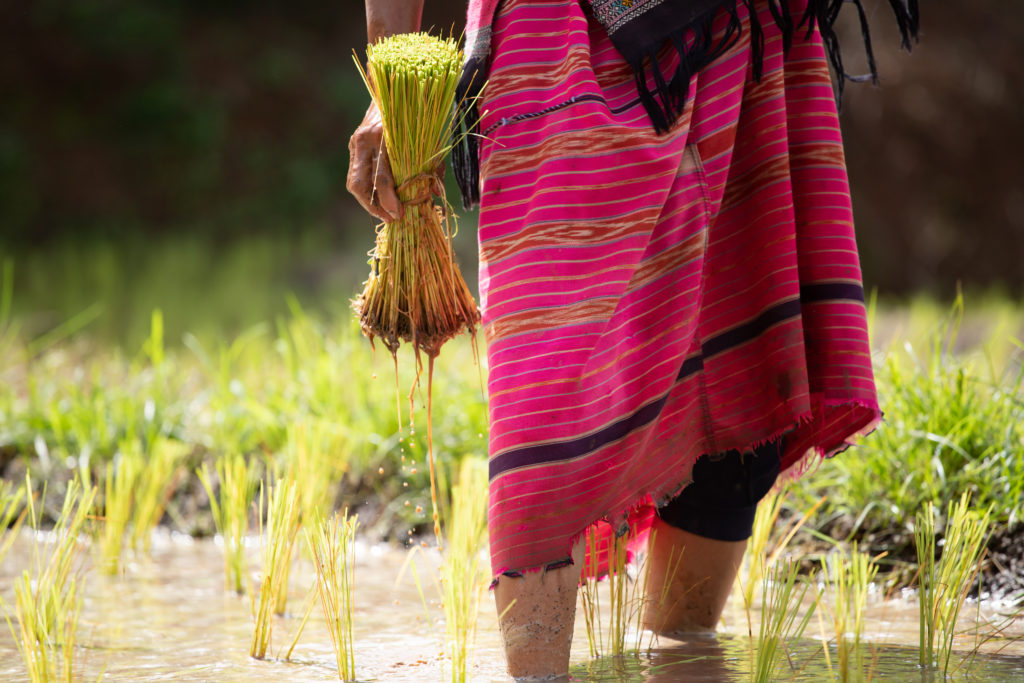Type of Change: Changes in practices and programs’ implementation
Boundary Level: Community
Summary/Theme: Changes towards efficient water use in paddy farming in the Deduruoya basin of Sri Lanka
Paddy is the staple food for Sri Lankans and the main income earner for rural farmers. However, the traditional way of cultivating paddy is highly inefficient regarding water use, as it uses more than 80% of the freshwater consumed in the country. Therefore, increasing the water use efficiency in the cultivation of paddy has become a must to cope with climate change in Sri Lanka.
Cap-Net Lanka, in collaboration with the Sri Lanka Water Partnership, led an awareness program on climate change adaptations for sustainable water irrigation for farmers from the Deduruoya basin. Extension officers of the Rice Research and Development Institute of Bathalagoda run the program. Farmer leaders in three major irrigation schemes of the Deduruoya basin developed their skills on diverse water management methodologies and new harvesting techniques aimed at having more rice paddies harvested using less amount of water and fertilizers. The ‘Parachute method’ for seeding, together with alternative drying and wetting irrigation techniques (as opposed to traditional direct seeding and continuous flooding), were introduced to the farmers during the training.
After Cap-Net Lanka’s capacity development activity, most of the farmer leaders were able to train members of their respective farmer societies and established pilot cultivation programs using selected farmers from their societies. Farmers from nine farmer societies witnessed that their average crop yields increased due to the new water efficient technologies adopted. “To have enough water for cultivation, farmers’ reservoirs had to be filled six times in the past, but this time they managed to cultivate their paddy without using additional water from their reservoirs,” mentioned a farmer leader in the Hunupola Ranketha Farmer Society.
Leaders from the Ibbagamuwa Farmer Society witnessed a 50% increase in their paddy harvest by putting into practice what they learned in the program. Moreover, it was reported that by seeing the progress made by those who were trained on the new water irrigation methods, other farmers in the area are willing to try these new practices during the next cultivation season.
